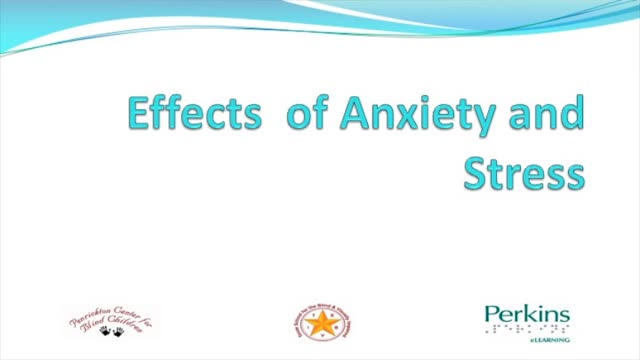Effects of Anxiety and Stress

Research shows that stress and anxiety can greatly impact brain development and learning. Unfortunately children with significant developmental disabilities and sensory losses experience high levels of stress daily. This compounds the challenges they face in learning. Fortunately we can do something about it using an Active Learning approach.
A massive anxiety cannot be removed just by someone telling you to not be afraid of whatever it is you’re afraid of —- people are afraid of spiders, water, and many other things. Children with special needs also are subject to fears and anxiety; many of them are in continual stress due to their sensory deficits. Their anxieties cannot be removed by demands or requests to not be afraid or upset. If they’re anxious about a toy that vibrates, new situations or new people, for example, our insistence only leads to their resistance and perhaps even behavioral challenges.
The person or persons who push you to do something you are afraid to do can become the enemy or perhaps someone we actively try to avoid. We have to become mindful of these fears and anxieties and provide support to help the child step out of his or her comfort zone.
Tips for Dealing with Anxiety and Stress
Here are some basic tips:
- Take time with the child to develop a trusting relationship utilizing the treatments of Offering and Imitation described by Dr. Nielsen in the Five Phases of Educational Treatment.
- Make sure the child can control his participation with the object or in the activity, e.g. be able to remove hands if something feels icky, walk away from you if he is feeling overwhelmed, reject that activity for today.
- Be a good playmate and play at the child’s emotional level.
Effects of Anxiety and Stress
Description: A massive anxiety cannot be removed by demands or requests to do what you are afraid of doing. While using energy to resist child is unable to learn anything at all. If learners want to spend time with you, you’re probably playing at their emotional level.


